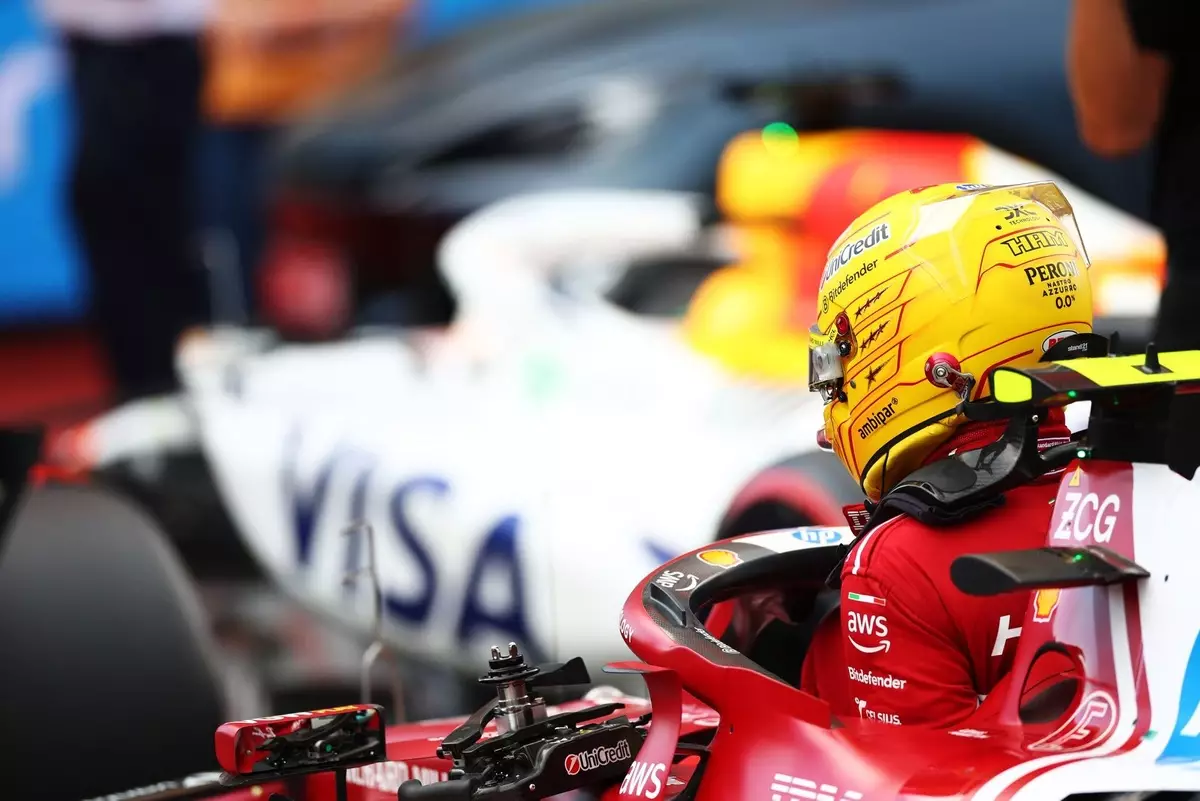Lewis Hamilton, a name synonymous with excellence in Formula 1, has said that the recent Spanish Grand Prix was “the worst race” of his illustrious career. This statement is particularly striking, given Hamilton’s status as a seven-time world champion, a driver who has tasted success on numerous occasions. However, this event in Barcelona proved to be anything but a triumph, as the 38-year-old finished sixth after starting in fourth place, only to be elevated to fifth due to Max Verstappen’s subsequent penalty. The weight of disappointment was palpable as Hamilton, who started strong, quickly found himself struggling within the confines of his Mercedes.
Hamilton’s performance was marred by a lack of pace and grip, especially mid-race when his vehicle’s handling appeared subpar. This absence of speed is somewhat troubling for Hamilton, who has continuously been a benchmark in the sport. He was soon instructed by his team to relinquish his position to teammate Charles Leclerc, a further indication of the challenges he faced during the race. While others, including his competitor Verstatppen, jockeyed for position, Hamilton was left seemingly powerless, a situation that only compounded his frustration.
The Weight of Expectations
Post-race interviews offered a glimpse into Hamilton’s mindset; his responses were curt and tinged with irritation. When asked about the car’s performance, he stated, “I have no idea why you’d say that,” indicating his disbelief at the mere suggestion that his vehicle had improved. The confidence we typically associate with Hamilton appeared to be overshadowed by a deep-seated frustration and uncertainty about the state of his car. This desperation for speed reflects a more significant issue within the Mercedes team; Hamilton is not just battling other drivers, but he’s also grappling with performance issues that threaten his legacy.
The contrast between Hamilton’s disillusionment and Leclerc’s relatively buoyant energy cannot be overstated. Leclerc, who had begun the race in seventh, managed to secure a podium finish, marking an unexpected yet rewarding outcome for him. His perspective is enlightening; he acknowledged, “I did not expect that,” suggesting that sometimes, a surprise performance can reinvigorate a driver’s spirits. Leclerc’s success, juxtaposed against Hamilton’s turmoil, exemplifies how the sport can act as a pendulum of fortunes, swinging drastically from joy to despair.
The Psychological Toll of Competition
At this elite level of racing, mental fortitude often plays as significant a role as raw talent or technical skill. Hamilton’s admission regarding his disheartening experience reveals how pressure affects even the most seasoned professionals. Each race is more than just a test of speed; it’s an examination of resilience in the face of adversity. The psychological ramifications of these experiences can be extensive and long-lasting. How Hamilton processes this disappointment is crucial, not just for his own career but for the team morale at Mercedes as well.
Hamilton, speaking in a tone devoid of its usual buoyancy, effectively illustrated that the mental aspect of racing is as tumultuous as the physical challenge on the track itself. The concise answers given during his interview highlighted an introspective confrontation with his own performance, emphasizing how critical one race can be in shaping a driver’s trajectory and overall mindset.
Looking Ahead to Canada
As the racing calendar advances to the Canadian Grand Prix, the need for Hamilton and Mercedes to rectify these issues intensifies. There’s an underlying urgency that accompanies Hamilton’s next steps; will he find a solution to the problems that have plagued his performance? Will the team be able to identify the setbacks and innovate in time to regain their competitive edge?
Hamilton’s future races speak to the wider narrative of Formula 1, filled with unforeseen twists and turns. The championship landscape is dynamic, and while Hamilton currently faces challenges, there is an opportunity for a comeback that could reshape the season’s narrative. Ultimately, Hamilton’s ability to turn this moment of profound struggle into a stepping stone will determine not only his own legacy but also the future trajectory of Mercedes in the high-stakes circus of Formula 1 racing.


Leave a Reply